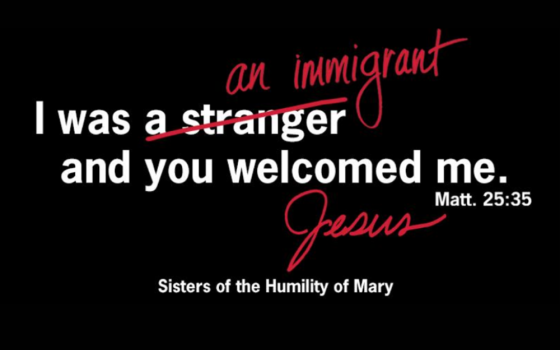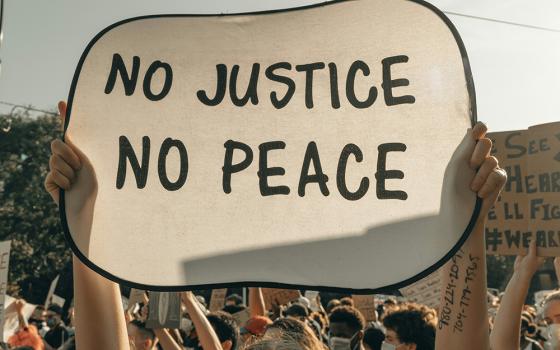I recently told a friend about Rebecca Traister's essay in New York magazine that named single, adult women as a powerful voting block that influences politics and policy. In response to my summary of the article she said, "It's refreshing to hear something positive being associated with being single."
Her comment reminded me that Traister's essay and forthcoming book, All the Single Ladies: Unmarried Women and the Rise of an Independent Nation, are not the first or only places I've seen the single life depicted as something powerful, praiseworthy or desirable. I remember learning in sermons, Sunday school lessons and Bible study sessions that God loves single people because those people put God's work first. When I was 23, I taped a printout of 1 Corinthians 7:32-35 to the wall of my cubicle at work. It served to remind me that as an "unmarried woman or virgin, … the Lord's affairs" were my priority. God -- or maybe at least Paul -- preferred that believers control their lust and remain single so that they live "in undivided devotion to the Lord." It wasn't necessarily easy, but it was preferable to the pressures of marriage and family, to the focus domesticity pulled away from godly devotion.
It didn't occur to me then that most unmarried, Christian young adults living in the twenty-first century who abstained from marriage weren't choosing the single life so that they could join the priesthood, live a monastic life, travel the world as missionaries, join a community of women religious, or fervently preach the gospel in what they presumed were the end times. They, and particularly the women, were marrying later than previous generations because there were other things to do. College was no longer the place for women to receive an M.R.S.; they went to obtain B.A.s, M.A.s, and Ph.D.s, and with those advanced degrees, women could start the path to a long-term career.
Not that education and careers weren't God's work. When I entered adulthood, the popular Christian teaching was that God gave people brains and talents so that they could be vessels for God's work and show that God answered our prayers and deepest desires. Of course a Christian woman could excel at science and become a surgeon; God had blessed her with the necessary intelligence, answered her prayers to help her retain what she studied and divinely intervened to admit her into a top medical school and match her with the right hospital for residency. There was no conflict for a Christian woman to become a professional ballerina or theater artist; she would just be expected to thank God and remind fans at every award show that all gifts and blessings come from heaven and that she could do nothing without God. This would serve as a way of evangelizing, which would lead nonbelievers to Christ. (Think about the lyrics, "If I be lifted up from the earth, I'll draw all men unto me.")
But even with a liberal definition of "God's work," the modern-day "undivided devotion to the Lord" is expected to be short-lived because the traditional nuclear family still functions as the main unit of stability and power in the Christian religion.
Consider that only six months ago, all eyes were set on Philadelphia for the eighth World Meeting of Families. The event's website describes the meeting as "a week-long international event of prayer, catechesis, and celebration that … seeks to strengthen the bonds between families and to witness to the crucial importance of marriage and the family to all of society." During the Festival of Families, married couples, engaged couples, men and women who had adopted children, men and women who wanted children -- so many versions of traditional nuclear families, or traditional nuclear families-to-be -- stood nervously before Pope Francis to share their testimony and receive his blessing. In an improvised speech, Pope Francis told festival-goers and everyone watching the broadcast streamed live around the world, "The most beautiful thing that God did, says the Bible, is the family."
In Christianity, the foundation of that beauty is marriage. While being single makes a woman a part of "the most potent political force in America" today, unmarried status gives her nothing in Christianity. So how should an unmarried, Christian woman navigate the tension between the Christian expectation to marry (and have children) and societal opportunity to remain single?
I want to ask how the church will reconcile its teachings on traditional family structure with changing demographics, but I have trouble imagining singles ministries that aren't just covert matchmaking services and self-help aisles in bookstores that don't advise women on how to improve themselves to attract a husband. What if there were a U.S. Conference of Singles that was largely workshops meant to guide clergy in reimagining the role of women in American society and in the church, or workshops for men to teach them how to be better at cooking, cleaning, doing laundry and balancing a household budget long into their thirties?
While a woman's unmarried status makes her part of "the most potent political force in America," it does nothing for her in Christianity. I'm waiting to see if and how this growing demographic might make its voice heard in religious circles as well as political ones.
[Mariam Williams is a Kentucky writer living in Philadelphia and pursuing MFA in creative writing at Rutgers University-Camden. She is a contributor to the anthology Faithfully Feminist and blogs at RedboneAfropuff.com. Follow her on Twitter: @missmariamw.]
Editor's note: We can send you an email alert every time Mariam Williams' column, At the Intersection, is posted to NCRonline.org. Go to this page and follow directions: Email alert sign-up.




